During the coronavirus pandemic, the media was frequently abuzz with reports of suicides by showbiz personalities.
Recently the arrest of kabuki actor Ichikawa Ennosuke on a charge of assisting in his mother's suicide received major media coverage. And on July 12, Okinawan personality ryuchell ended their life at the young age of 27.
At times like these, reports Shukan Post (Aug 4), the phones at the various Inochi no Denwa suicide counseling hotlines are ringing off the hook.
"I call and call, but can never get through" is a commonly heard complaint.
Akihiro Kato, secretariat of Inochi no Denwa Association in Aichi Prefecture, explains why.
"Once we had 200 volunteer counselors available at any given time, but through aging and attrition the present number has declined to about 160. It's not that we can't handle all the calls, but based on past surveys, we've been receiving more than 10 times the number of calls and many people complain they can't get through."
Inochi no Denwa's funding comes from donations and subsidies, and the volunteers who take the calls work without compensation.
Koichi Saito, secretariat of the group's Chiba branch, explains that "Counselors work on a shift basis, with the service operating 24 hours a day, 365 days a year. Both callers and counselors are kept anonymous.
"Basically each call is considered a one-time transaction. Unlike medical facilities there's no charge for the service, and it's possible the conversation can be overheard by people nearby. About half of our operating costs are covered by donations, with 30% to 40% coming from government or welfare organizations. Our average annual cost for the past three years has been around ¥19 million."
The first suicide prevention hotline dates back to the UK in 1953. To become qualified as a counsellor in Japan requires more than one year of study, with the costs -- amounting to several tens of thousands of yen -- borne out of the volunteer's own pocket.
"After working as a social worker for 30 years, I reached retirement age and became a telephone counselor," a man in his 60s tells the reporter. "I go in to work three or four times a month. During a three and a half hour shift, I might talk to four or five callers.
A female volunteer in her 60s who works for the Chiba branch talked about her own experiences.
One caller might say, "I'm calling from the roof of a building.' So the first thing I do is ask them to move to a place where we can talk in a more relaxed manner. We try to get them to promise to call again the next day. I always end by saying, 'I'll be waiting to hear back from you tomorrow.'"
The overall the gender of callers reflects the male-female ratio of suicides in Japan, of roughly two males for each female.
"Men who have just quit their jobs have it particularly rough, as they feel by leaving their work they have no one left to talk to," the Chiba-based counselor tells the magazine. "That's the impression I get at any rate."
"Widespread coverage of suicides by celebrities poses problems, both in terms of means and methods," says Tetsuya Shibui, an author of a book on suicide.
"It can also have a stronger effect on people who have aspirations and who are fans of the celebrity.
"The media displays the telephone hotline contacts at the end of printed articles and using subtitles on TV. But when I see how people like ryuchell were featured, I sense that it is easy to assume that news like this will be widely reported."
Since September 2020, when actress Yuko Takeuchi committed suicide, the Ministry of Health, Labor and Welfare took the initiative by issuing media referencing guidelines from the World Health Organization.
The aforementioned telephone counselor in Chiba talked about some of the difficulties she faces.
"This is just my personal impression," she says, "but when the media covers a suicide by a celebrity or well known person, the number of calls increase, but in many cases because the lines are busier some callers can't get through."
"Since our primary concern is suicide prevention, our first concern is for the person who may be thinking, 'For me now, there's nothing but death.' We want this person to be able to get through. So while it's good to disseminate our contact numbers, the downside is that we receive more frivolous calls, which is very vexing to say the least."
If you or someone you know is in Japan and having suicidal thoughts, there are people who can help. Click here for more info.
© Japan Today

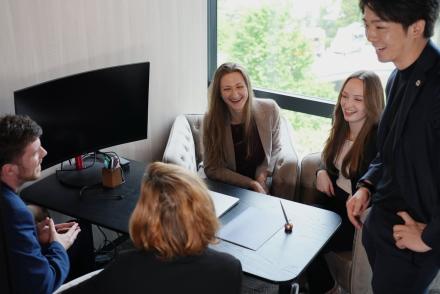

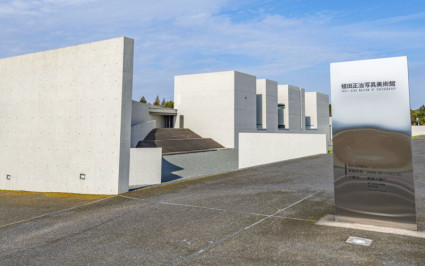


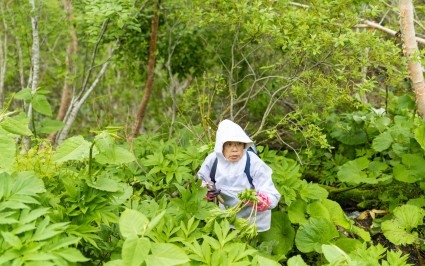
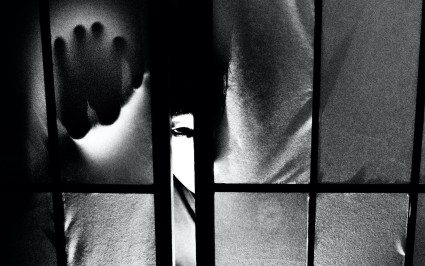
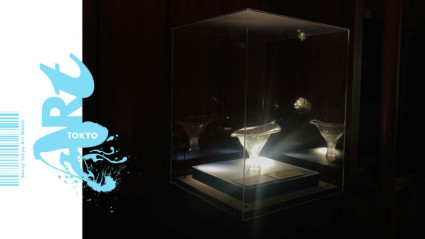


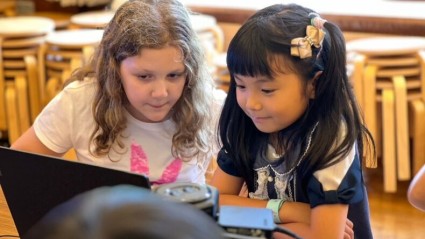
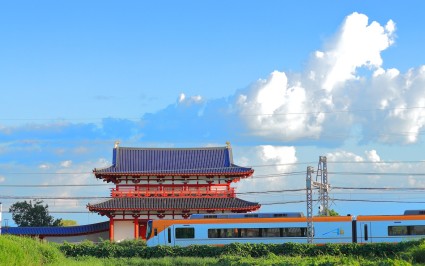

15 Comments
Login to comment
Ricky Kaminski13
Lot of sad lonely people out there wondering what their conveyor belt life is all about, never been given the mental goods to fully process what’s going on nor imagine that there are options.
If the hotline calls are on the rise the least the government can do is to hire more staff to accommodate them. At least try. The sad fact is how little it really takes to connect, and how little encouragement people really need to pick themselves back up again.
The culture instinct to non-action unfortunately tends to drop the ball . Most prefer to be spectators to the problem, aware of it but just lacking the will or the courage to help out. Watch the numbers keep rising as the masks stay on, and if you see the signs make the moves!
Chico3
Just remember to all who are considering it, you are very important and you matter. In the end, someone loves you.
Yuuju
if i was told that back in my dark days i would either laugh or get irritated. Its precisely because a person is not gifted with the love of whomever surrounds them that they feel depressed, no? Of course there are cases when a person has everything love, job, family but still feels suicidal thats another kind of depression. Japanese family relationships are rather chilly and somewhat formal, the culture of not being a bother to others make it all worse when a person faces stress, they realise there are actually no people who really care or can or want to be there present with them and their emotions. Strong psychological basis that could be formed in childhood is absent, spirituality (and thus strong inner core) is absent since most Japanese are not Christians so what can possibly give a person power to be resilient when emotions overwhelm them. However, God has the power to make a person finally feel okay even when theres a feeling theres no meaning in their life and theres no one for them there. Just dont expect it to be a vending machine, persist with the prayer and change the lifestyle.
PerformingMonkey
@Yuuju
Utter nonsense!
Yuuju
PMonkey, I wont ask you ‘why’ since everyone has their own opinion. If you think I was wrong on some point you are free to elaborate.
Daniel Neagari
Ricky Kaminski13July 25 07:59 pm JST
As a person diagnosed with cronical clinical depression, let me tell you this comment is not accurate. I am not lonely, I am married and my wife loves me, even then when I was in the deepest point of my last depression episode, I did consider killing myself (this was three years ago more or less)... So no, sad people we may be, but lonely is not a requirement to be depress of to considr suicide.
Another thing, "little" encoragement is not enough, being depress is not solved only with a kind word and "little support"... to be honest if someone is just going to give "little" of anything, better keep it to yourself.
Daniel Neagari
@Yuuju
To be honest, religion in many cases makes it worse. When catholics "tried" to support ... I really prefered to be death.
And, christianity as part of family core (my mother is one of those) does not prevent nor help in depression.
wallace
Are there suicide hotlines for foreigners? The article should have some main suicide hotlines.
Moderator
Please click the link at the end of the story.
Yuuju
Daniel
religion may not help, faith does. I know that many Christians dont interpret Christianity correctly, there are many insincere people who call themselves Christians but fail to understand another person. I wont say my pastor saved me after we had an inspiring conversation but my faith saved me and God saved me from a very deep depression that I wont ever belittle it or name it self hypnosis. Qualified psychologist with a kind heart is a bless I think Id benefitted from having one in my life but unfortunately at that time I had neither resources not a chance to get treatment. Also in many cases even the most talented and kind one wont help.
Yuuju
*fail to be empathetic towards another person
Jimizo
So many people believe they’ve interpreted it correctly.
They’ve killed one another over it.
What makes you think you’ve interpreted it correctly? Have you read a lot on the subject?
I’m one expecting half of the books ever written on it.
Jimizo
*I’m not
falseflagsteve
Better mental health understanding and treatment is required now not later. It’s still a taboo here to ask for help or that kind of stuff or mention to friends or in the workplace.
Get up to date here and help people.
Daniel Neagari
No is not. Although there is no deny in several organizations (private mostly) mentioning the mental health issue (or any other none work related issues) is kind of "punished" that is not the norm and the Japanese society and authorities are working toward eliminating that kind of mentality.
Having said that, I have experience fist hand that the abuse and lack of understanding toward mental health is problematic in other contries (in some cases worse that Japan), like the US and Chile (from my experience and what I have witness).
All for all, I think Japan is doing fairly good in what is mental health support and understanding. There is much to overcome and to fix, but its on the good path.